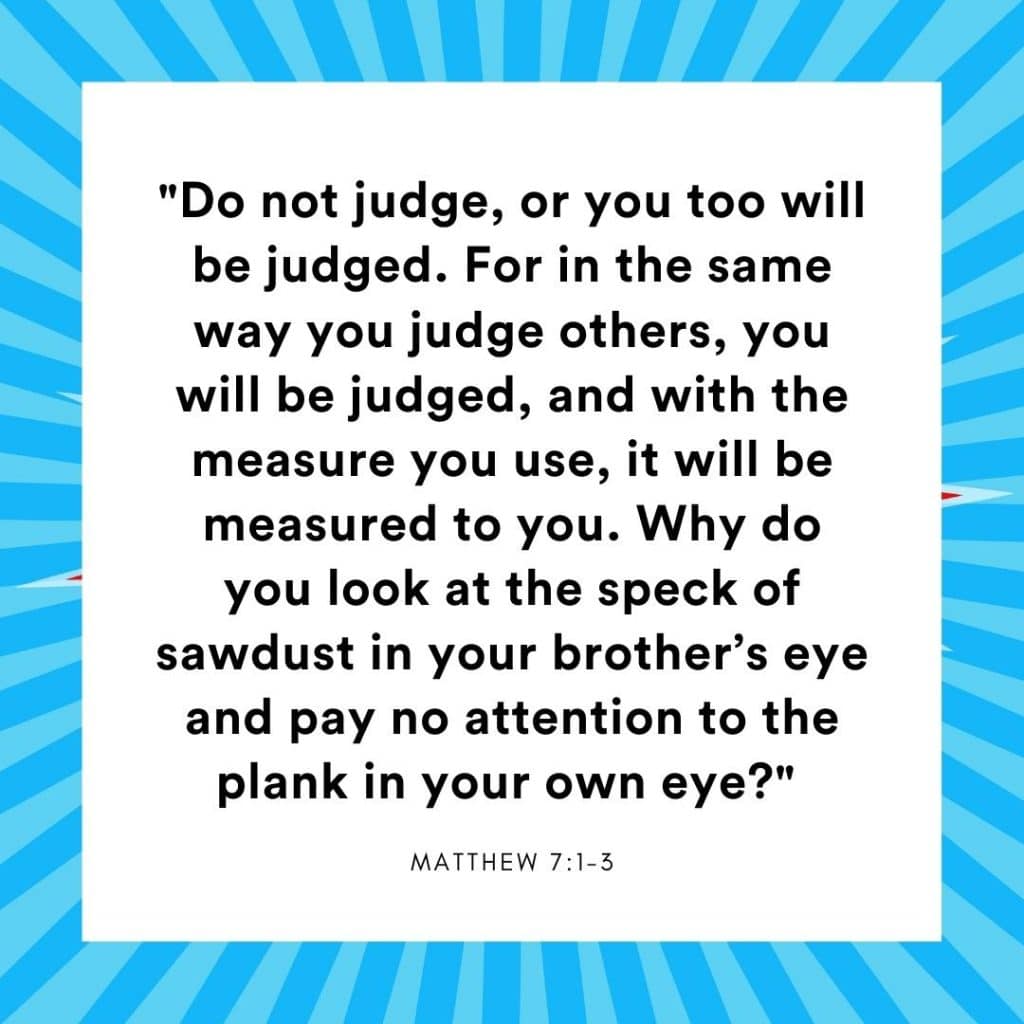I was wrong about the Christian faith: 3 misconceptions I had as an atheist
by Levan Wee // August 19, 2022, 2:27 pm

An atheist for a quarter of a century, the author shares his past prejudices and bad impressions of the Christian faith and its believers. Illustrations by Nicole Chan.
I was a liberal-leaning atheist for more than 25 years. I didn’t believe in the existence of God. During this time, I honestly found Christians, in particular, highly irritating.
I heard people say a lot of bad things about Christians. I also talked to some believers who made me think that they were all judgmental, hypocritical and close-minded.
I used to be extremely hostile to the faith for a long time.
However, in 2020, I experienced a series of supernatural events that completely blew my mind. I finally – and very suddenly – realised that God is real. Soon after, I received Christ into my life and became a Christian.
Isn’t life ironic? Heh.
As I journeyed through my faith, I realised that many of my early ideas about Christianity were wrong. My bias against Christians was mostly due to my misconceptions about the faith, the Bible and even Jesus.
The truth is, faith in Jesus – as it is actually described in the Bible – is radically different from what I had thought it would be.
I know a lot of people reading this have the same hang ups about Christianity that I did. In a lot of ways, I truly relate to how you feel.
But I hope that by sharing some of my personal reflections along with Bible verses, you may come to see the Christian faith in a new light.
Here are three things I used to think about Christianity, but have now changed my mind about.
Misconception #1: “Christians think they’re better”

In the past, some Christians I spoke to would tell me that they were good enough to go to heaven, whereas I was going to hell. I also saw many online comments made by Christians who were hyper-fixated on calling others out for their sin and different lifestyles.
This really got under my skin.
The Bible actually warns people not to think of themselves as better than others.
Steeped in my prejudice, I concluded that all Christians thought they were better than the rest of us. I saw them as people who saw themselves as morally and spiritually superior to others.
As a result, I rejected the whole of Christianity, which I assumed to be the root and the festering problem of their self-righteous behaviour.
However, now having read the Bible for myself, I no longer think this way.
First, the Christian faith does not condone “holier than thou” thinking.
Quite the opposite, it actually warns people not to think of themselves as better than others. This is a trap of self-righteousness that all of us, Christians and non-Christians alike, are prone to falling into.


Secondly, a far cry from teaching people to be self-righteous, the Bible points out, unapologetically and without reserve, how unrighteous we all are when held up to God’s holy standards. We are sinners by our human nature.
“… for all have sinned and fall short of the glory of God.” (Romans 3:23)
“If we say we have no sin, we deceive ourselves, and the truth is not in us.” (1 John 1:8)
The gift of salvation offered to all, is credited to Christ’s goodness, not our own.
Knowing that we are all sinners points us to faith in Jesus. He is the Son of God “who committed no sin” (1 Peter 2:22). Yet, he took the just punishment meant for us upon Himself on the cross, thus “cancelling the record of debt that stood against us” (Colossians 2:14).
So, while I do think there are Christians who seem to hold a self-righteous attitude towards people, I’ve come to also realise that the Christian faith in and of itself isn’t about thinking “I am better than you”.
On the contrary, it is a firm reminder to “not think of yourself more highly than you ought, but rather think of yourself with sober judgment” (Romans 12:3).
It is by humbling our hearts that we can better recognise our equal and genuine need for Christ, who by his sinlessness reconciles us with God (Romans 3:25; 2 Corinthians 5:21).
This is a gift of salvation offered to all, credited to His goodness, not our own.
Misconception #2: “Christianity is boring!”

As an atheist, Christianity as a whole seemed painfully dull.
I really saw it as a stuffy religion made up of dry rituals, tired traditions, and an old book that was no longer relevant. In my opinion, Christians worshipped a God who was dead and boring.
The reality is that God is everywhere and is always with us.
But, oh boy, was I wrong!
The reality is that God is everywhere and is always with us (Jeremiah 23:23-24; Proverbs 15:3; Matthew 28:20). He is also very much alive, dynamic, and – as we read in the Book of Acts – still does signs and wonders that draw us closer to Him.
I’ll share one experience from my own life to testify to this.
One night in 2021, I was praying alone on a rooftop balcony when I saw two visions: The first was of an elephant, and the second was of an umbrella over my head. Then I felt God say to me: “You are under my covenant. I will protect you.”
At first, I thought these visions were due to my overactive imagination. Maybe I was just making stuff up in my own mind? So I kept what I saw to myself, telling no one.

I saw a vision of an elephant and an umbrella over my head, each seeming to symbolise something to me.
But the very next day, a Christian staff member at the hostel I was living at came up to me. She told me that God had awakened her from her sleep last night.
She then asks me, point blank: “He told me to tell you the word ‘elephant’. Does this mean anything to you?”
I was shocked! There was no way she could have known about my vision … unless God had told her?
Just a short time later, I met two Christian friends for dinner. During the meal, one of them looks up and says: “I’m seeing something with my spiritual eyes. There’s an umbrella over your head.”
I was floored! There was no way he could have known of my vision and the exact words that came with it.
He adds: “God says you’re under His covenant. He will protect you.”
Again, I was floored! There was no way he could have known of my vision and the exact words that came with it, unless the knowledge came from Him.
Of course, such direct supernatural incidents don’t happen every day, and they are certainly not the main point of Christianity – God Himself is, and will always be, the focus.
However, my experiences and those of many other Christians show us that God is as alive and exciting as ever. He is anything but dead and boring.
I used to regard Christianity as a dry relic of a religion. But I now know that’s absolutely not the truth.
True faith in Jesus – who is “the same yesterday and today and forever” (Hebrews 13:8) – promises a life full of exciting surprises and unexpected delights. It is a vitalising relationship with our living God.
Misconception #3: “God is a genie”

I once thought that every single Christian treated their God as some sort of servant genie, a magical deity whose sole purpose was to cater to their shallow material wants.
My bad impression was fuelled by my online exposure to the “prosperity gospel”. This is a movement that became popular in the US, but has since spread to other parts of the world.
Greed for monetary rewards – and expecting God to give them to you like a genie – is not what the faith is about.
Famous prosperity pastors often preached (and shouted) the idea: “If you just pray in the right way, God will make you really rich!”
As an onlooker who used such sermons as my only reference point, I didn’t understand why Christians were so obsessed with personal gains and worldly success.
I often wondered: “Does God desire His followers to dream of owning Bentleys and becoming CEOs? Is this what Jesus wanted, what He came to die for?”
On becoming a believer, I soon discovered that the Bible actually paints a very different picture from what prosperity pastors were selling.
Money and material things aren’t bad in themselves. In fact, they can sometimes be a blessing from God to provide for those we love (Deuteronomy 8:18; 1 Timothy 4:4; 1 Timothy 5:8). The Bible also sheds light on the importance of material resource management (Proverbs 6:8).
However, having a greed for success and monetary rewards – and expecting God to give them to you like a genie – is most definitely not what the Christian faith is about.

Jesus said in no uncertain terms: “No one can serve two masters … You cannot serve God and money” (Matthew 6:24). He also cautions us against storing up “treasures on earth” (Matthew 6:19) and getting obsessed with “an abundance of possessions” (Luke 12:15).
In short, contrary to the feel-good falsities of the prosperity gospel, God isn’t just hanging around waiting to fulfil our self-indulgent, get-rich-quick dreams. He is not a means to achieve our opulent ends.
Instead, the Christian faith is an open invitation to put God first in our lives. Any blessings given to us, material or otherwise, are merely a byproduct – not the goal – of our desire to draw closer in relationship with Him.

The prosperity gospel reduced God to an ATM for our material desires. But now I see that being a Christian is a much more nuanced, joyful and, at times, a spiritually difficult journey with God as we learn to trust and move in His higher ways (Proverbs 3:5-6; Romans 12:2).
Not because He forces us to, but simply out of our love for Him.
Seeing faith in a new light
I truly relate to how hard it is to let go of misconceptions about Christianity. Believe me, I was hostile to the faith for a long time.
Trust me: As an ex-atheist, I promise you having a relationship with God will be the best decision of your life.
However, I hope you will open up your heart to exploring a relationship with God beyond any prior impressions you may have.
To start, all you need to do is sit alone for a moment and say this one simple prayer to God:
“God, show me the truth about who You are, freed from my past prejudice. Reveal Yourself to me and help me to believe in You. Teach me how to follow You. In Jesus’ name I pray, Amen.”
Pray this with a sincere heart. Trust me: As an ex-atheist, I promise you it’ll be the best decision of your life.
It is my hope that you may come to experience the joy of a God who truly loves you like no other.
RELATED STORIES:
How snowskin durian mooncakes and a 75-inch TV created Golden Moments that showed God’s grace
We are an independent, non-profit organisation that relies on the generosity of our readers, such as yourself, to continue serving the kingdom. Every dollar donated goes directly back into our editorial coverage.
Would you consider partnering with us in our kingdom work by supporting us financially, either as a one-off donation, or a recurring pledge?
Support Salt&Light


